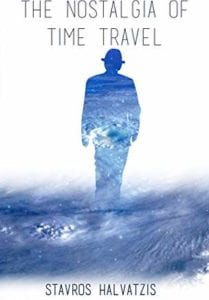
Shelf Unbound: Your main character is an aging theoretical physicist who has been rather alone for many years since losing his young wife in an accident. Tell us about Benjamin and how you came up with this character.
Stavros Halvatzis: I drew on many sources—people I have known, loved and admired, places I have experienced first hand. But those fragments needed glue to bind them together into a single character. That glue is Benjamin’s relentless obsession, fed by the memory of two events that changed his life.
The first event contains knowledge about his uncle that he dares not reveal to himself. The second lies in the sense of loss resulting from the death of his wife, Miranda, in a boating accident in Sydney, thirty years previously. As the years pass his yearning mixes with memory, hope and despair, settling into a state of perpetual nostalgia.
Being a theoretical physicist working on the problem of time travel, Benjamin believes that if he can prove that travel to the past is possible, he can go back and change it. He can save his wife.
Shelf Unbound: Benjamin is working on cracking the math on time travel. What intrigues you about time travel?
Halvatzis: Well, it’s a very fascinating subject. Time travel to the future, implicit in Einstein’s theories of Special and General Relativity, has already been proven as a measurable effect. But travel to the past is different, because it involves paradoxes. If something has already happened it can’t unhappen. Or can it? Benjamin is still working on that one.
Shelf Unbound: You’ve written a few other sci-fi/thriller novels. What is generally your starting point for creating a story?
Halvatzis: In the past I generally started with a concept—a what if. In my first novel, Scarab, for example, I asked the question: What if a secret formula is discovered in a hidden chamber under the paws of the Sphinx of Giza that turns out to be the missing clue for perfecting the world’s first quantum computer? What if this computer could change the laws of physics? Who would win the scramble to posses it? Having come up with the concept, I tackled the characters next.
